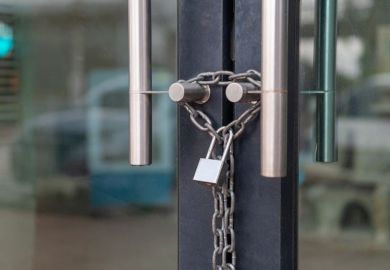Three higher education providers are being investigated by the Office for Students over “sharp increases” in the number of first-class and upper second-class degrees they have awarded.
The OfS – which is not currently naming the institutions involved – said it has identified “potential concerns” that the three are not complying with its regulatory framework.
Under condition B4 of the framework, universities and colleges must assess students effectively, and award qualifications that are “credible compared to those granted previously”.
“Grades should not be inflated so that the same level of student achievement is rewarded with higher degree classifications,” the regulator said.
Government ministers and the OfS have been increasingly vocal on grade inflation of late, following large increases in the number of top grades awarded across the board over the past decade, a trend that was exacerbated during the pandemic due to “no detriment” policies introduced to ensure students were not disadvantaged by the disruption.
Earlier this year the regulator published an analysis which showed that the proportion of first class degrees awarded in England has more than doubled, from 15.7 per cent in 2010-11 to 37.9 per cent in 2020-21. It said these proportions “have become a focus for public and sector concern even before the pandemic”.
The OfS said, while improved teaching and assessment methods and student hard work have contributed to better results, 59 per cent of first-class degrees “cannot be explained when compared with performance a decade ago”.
In response, Universities UK and Guild HE made a commitment in July to deflate grades back to 2019 levels in an attempt to restore public confidence that degree classification is a reliable measure of students’ performance.
The OfS stressed that its decision to open investigations meant that the concerns “required further scrutiny” but “should not be interpreted as indicating that any form of wrongdoing has actually taken place in any of the three providers concerned”. It said it expects to publish further details about its investigations in due course.
Register to continue
Why register?
- Registration is free and only takes a moment
- Once registered, you can read 3 articles a month
- Sign up for our newsletter
Subscribe
Or subscribe for unlimited access to:
- Unlimited access to news, views, insights & reviews
- Digital editions
- Digital access to THE’s university and college rankings analysis
Already registered or a current subscriber?








